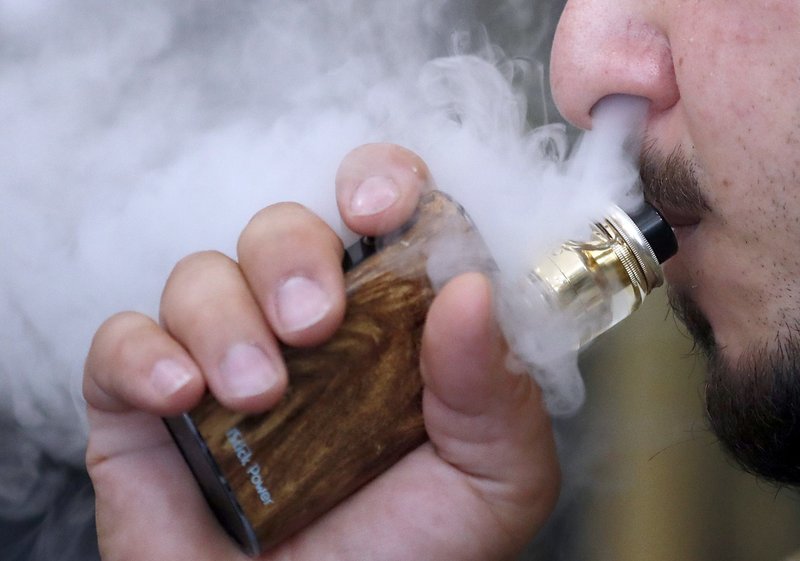In a shocking revelation that could upend the global vaping industry, a groundbreaking study from Manchester Metropolitan University has sounded the alarm: vaping, long touted as a safer alternative to smoking, may pose even graver risks to human health than traditional cigarettes. The findings are sparking urgent calls for regulators to act as millions of vapers worldwide face an unforeseen ticking time bomb.
The study, conducted over two years by a team of leading toxicologists and respiratory experts, examined the effects of e-cigarette vapor on lung tissue, cardiovascular health, and cellular function. What they uncovered was nothing short of chilling. Unlike cigarette smoke, which delivers a predictable cocktail of toxins, vaping liquids—laden with flavorings, nicotine, and mysterious chemical additives—produced a volatile stew of compounds that triggered alarming levels of inflammation, oxidative stress, and DNA damage in test subjects.
Dr. Emily Hargrove, the study’s lead researcher, didn’t mince words. “We’ve been sold a lie,” she declared. “The assumption that vaping is a harmless escape from smoking is crumbling. Our data shows that certain e-liquids cause cellular chaos at a magnitude we haven’t seen with tobacco alone. This isn’t just a health risk—it’s a health emergency.”
The numbers are staggering. The study found that exposure to some popular vape flavors—particularly those with sweet or fruity profiles—resulted in a 40% higher rate of lung cell death compared to cigarette smoke exposure. Even more alarming, the vapor’s ultrafine particles penetrated deeper into the bloodstream, accelerating plaque buildup in arteries by an estimated 25% more than smoking. For the heart and lungs, vaping could be a double-barreled shotgun, firing faster and harder than the slow burn of tobacco.
Health officials are scrambling to respond. The UK’s National Health Service, once cautiously optimistic about vaping as a smoking cessation tool, is now under pressure to revise its stance. Anti-tobacco advocates, meanwhile, are seizing the moment to push for outright bans. “This study is a wake-up call,” said Fiona Grayson of Breathe Free UK. “We’ve let these products flood the market unchecked. How many lives have we already lost to this experiment?”
Critics of the study caution that the research, while rigorous, is preliminary and based on lab conditions rather than real-world use. But with the Manchester team already planning a follow-up study—and whispers of similar findings emerging from labs in the U.S. and Europe—skeptics may soon be drowned out by a mounting chorus of concern.
For now, the message from Manchester Metropolitan University is clear and dire: vaping isn’t just a gamble—it could be a death sentence. As the world awaits further confirmation, one question hangs heavy in the air: have we traded one killer for another?
If you vape, experts urge you to consult a healthcare provider immediately. Your next puff could cost you more than you think.
(YWN World Headquarters – NYC)












9 Responses
Maybe our bochurims Roshei Yeshivos and Menahelim can put a stop to this madness?
The Manchester Metropolitan University (MMU) study, led by Dr. Maxime Boidin and due to conclude in March 2025, investigates vaping’s long-term effects on vascular health. Early findings suggest vaping may damage artery elasticity and blood flow, potentially rivaling or exceeding smoking’s harm, with implications for heart disease and dementia. However, specific claims like 40% higher lung cell death or 25% faster plaque buildup don’t directly match
MMU’s focus on cardiovascular effects and lack published confirmation.
Note: Without full results, the study’s claims might be overstated or misreported, so caution is advised.
We need to wake up our youth. Like Rabbi Avigdor Miller ztl once said. Anyone that smokes even with a long white beard is a Shoitah. Years ago the dangers of smoking were not known. Today there are warning signs on every pack of cigarettes. No excuse
well… that’s a shock. not sure how bochurim are going to take this…
Oh, really? Silly me! I smoked for 21 years and for most of those years I couldn’t breathe. Now I’ve been vaping for 10 years and my lungs are fully functioning but the soul crushing pro death lobby puts out a new study saying that I’m in bigger danger now?
Blatant misinformation.
NHS and FDA both concluded that vaping is far less hazardous than smoking.
This is an unpublished study coming from a tabloid – The Mirror. Its post was Community-Noted on X for misinformation.
In 2022, the UK government published a 1,500 page report concluding that vaping is at least 95% safer than smoking.
A tabloid article about an unpublished study is unlikely to change this.
It has long been known to be dangerous. But the mitzvah of shmiras ha-guf is not on everyone’s radar. That’s why they continue to eat harmful foods as well, even though the grocery stores have plenty of healthy foods. For centuries most Jews were poor and had few choices. So awareness of this mitzvah declined. Plus the distrust for science. Plus the “I know so-and-so who vaped and lived to 95” logical fallacy.
As somebody who has suffers from the inconsiderate behavior of smokers, I prefer that they vape. If they really cared about their own health then they wouldn’t be doing either of them anyway.
This research is unpublished. It apparently looked at fitness and blood flow in those who vape and those who smoke, and found that both are impaired in BOTH groups. While it is possible that the group that vapes did worse on the tests, the numbers weren’t published so we simply don’t know.
MOST IMPORTANTLY, this study does NOT tell us whether vaping is worse than smoking overall. It may show that vaping has negative effects, which we know, but all available evidence shows that smoking is STILL worse than vaping when comparing all effects. Smoke (and tobacco) doesn’t just cause blood flow issues; it causes cancer, which vapes have not been proven to do.
I am not a proponent of vaping, but articles like this need to be published with a lot more caution and accuracy, because headlines like this may encourage people who vape to smoke instead, rather than quitting, which puts them in greater danger.